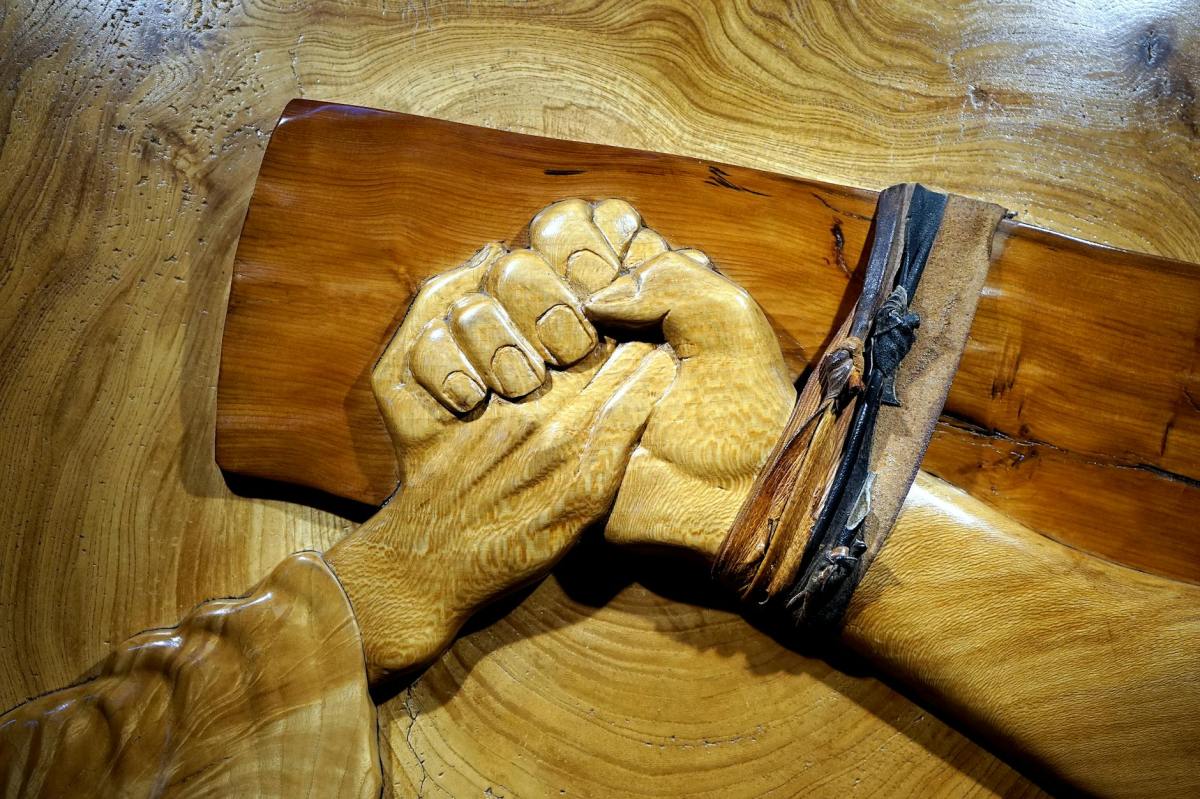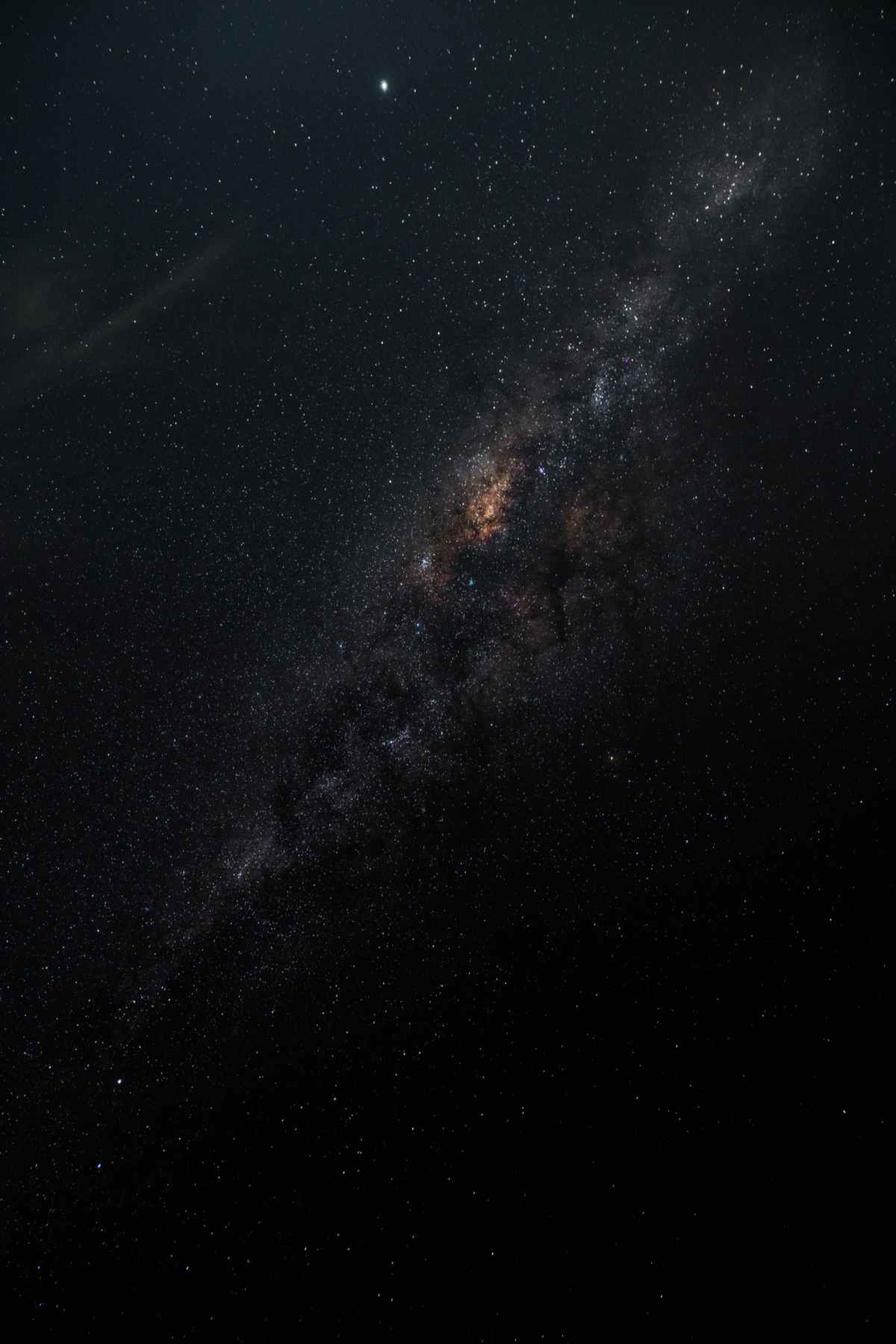I preached this sermon on Good Friday, March 29th, 2024 at St. Anne Episcopal Church, West Chester, OH.
Here we are.
Here we are, at the Cross. At the place that is an ending, even if we pray that it’s not the end. It’s the day in the story that no one wants to think much about and yet that must be faced, eventually. The day that is full of dread and sorrow and pain and yet compels us in ways that are hard to explain. We are pulled in close on this day, challenged to listen and to look, challenged to stay, even if we would rather run far away, rather be anywhere else than here, in proximity to the tears and the sweat and the blood, holding vigil with a broken man as he weeps and dies. With a broken God as he weeps and dies.
We do not enjoy this observance, and yet we come, on Good Friday, because somehow we know that we must come. Not out of a sense of religious obligation or detached piety. No, we leave all of that posturing far behind us if we are actually paying attention to the story, if we are actually open to it. Out here on Golgotha, where things are brutally spare and honest, where only the wind and the rock and the bones take note of our presence, out where even temples and empires have neither sense nor safety to offer, it is something deeper than duty that draws us.
We come here because we know, in a way deeper than knowing, that this is what love requires of us. We know, somehow, that showing up, that being present, that being able to look into someone’s frightened, tired eyes–into Jesus’ frightened, tired eyes–and to simply say, “I’m here,” is the most important thing that we can do when there is nothing else left to do.
We know this because we know death all too well. We have lived it. If you have ever received that call or text that comes late in the night and you have rushed to be with someone who is gravely ill or dying, you know what I mean. You know how, as their eyes grow dim and their energy fades and their breathing changes, and then they are sleeping, and then they are slipping, and you aren’t even sure if they can hear you anymore…you know that you cannot do much of anything except say, “I’m here. I’m here. I’m here. I love you. And I’m here.”
We feel helpless, then. And we are. And yet this is exactly what we need to do at such times. No big gestures, no eloquent words are necessary. Just, “I’m here.”
And so it is fitting, now, as Jesus dies, that we stop what we’re doing, that we come here from wherever we are in our lives and in our hearts. Not to fix anything or figure anything out. But simply to say to him: I’m here.
I’m here, Lord, even if we weren’t always as close as I’d hoped.
I’m here even if I never fully understood you, even if I never felt fully understood.
I’m here, even though there are a thousand questions you never answered, and a thousand more I never asked.
I’m here, even though I have doubted you, and I have doubted myself, I have doubted whether the type of love you talked about is even possible in a world as broken as this one.
I’m here, even though I cannot bear to see you like this.
I’m here, because I cannot imagine never seeing you again.
I’m here, and somehow, I pray that it is enough that I am here, to hold your hand, to look into your eyes, to show you that you are not forsaken.
I love you, and I’m here.
The strangeness of it all, is that, on this day, we are here consoling God as God dies, whereas for all the rest of our days, God has been the one drawing close to console us. Since the moment we were born, and as we grew up, and as we grew older and began to learn the cost of growing old, God has always been waiting, listening, watching, staying near. God has been ready, when we cry out in pain or fear, ready to drop everything, to come, to say, “I’m here. I’m here. I love you. I’m here. I know you don’t understand. And I can’t always fix it for you, but I’m here.”
Yet now, in the mysterious circularity of love, like children who must one day cradle their parents, it is our turn. Our turn to comfort our Creator, our Lord, our God, as he cries out and enters the darkness, enters death—the one and only place where he, being eternal, being God, has never been before. Our turn to help him feel a bit less afraid, just this once.
Our turn, now, to be the one who is strong, the one who must endure, who must bear witness, who must show up, as God has always done for us. Good Friday is our turn to offer back the gift of presence, saying, yes, God, I know. It hurts to live. And it’s scary to die. I know. But I’m here. I’m here. I’m here.
In other words, today is the day, spiritually, that we grow up, that we become the ones that he always longed for us to be. The ones who choose, in coming here, to no longer hide from death nor from pain nor from ourselves, because love compels us, above all, to show up, to stay present, no matter what. And because today, on the Cross, God, who never needed anything, who didn’t know what need felt like, now needs us.
For he has traveled from farther than forever, and the trip has taken its toll. He has been wearied and winnowed down to the bone. He has spent all he had, and he has nothing left to give over except his body, and he is willing to risk be misunderstood and despised and mocked, all for the chance to come and find you and say those words from his own lips that God has been trying to tell us for all time: I’m here, I’m here, I’m here. I love you. I’m here.
As it turns out, all he ever needed was to hear us say it back.


